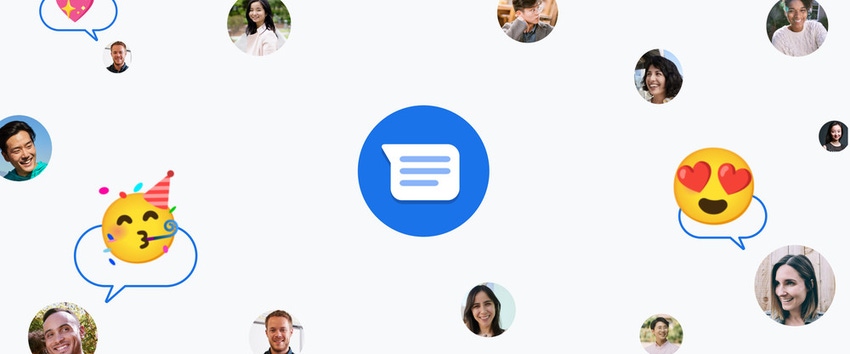Following in the footsteps of T-Mobile and AT&T, the last of America’s “big three” Verizon announced that Android Messages will be the default bearer of its RCS messaging service from next year.
July 21, 2021

Following in the footsteps of T-Mobile and AT&T, the last of America’s “big three” Verizon announced that Android Messages will be the default bearer of its RCS messaging service from next year.
Even before the telcos formally abandoned their joint Cross Carrier Messaging Initiative (CCMI), T-Mobile had already adopted Android’s RCS solution which Google launched late last year. Simply called Messages, the app is pre-installed on new Android smartphones in the open market or can be updated on compatible in-market models.
Soon after CCMI was put to rest, AT&T followed suit by handing over its messaging to Google. Now the last of the trinity, Verizon, announced that it is also defaulting to Android Messages for RCS.
“Our customers depend on us to provide a reliable, advanced and simple messaging platform to stay in touch with the people that matter the most in their lives,” Ronan Dunne, executive vice president and CEO of Verizon Consumer Group, was quoted in today’s announcement. “By working with Google, Verizon will offer our Android users a robust messaging experience that allows them to engage with loved ones, brands and businesses in new and innovative ways.”
“Verizon and Google have been working together on Android since the early days of smartphones, and we’re excited to be working with Verizon today to bring a modern-messaging experience to our users,” added Hiroshi Lockheimer, Google’s senior vice president of Platforms & Ecosystems.
As this publication has reported, while RCS may be playing catch-up in features versus services like WhatsApp and WeChat, its value to operators lies in serving business customers’ communications needs, the so-called “A2P” (application-to-person) communication, for branding, promotion, customer service, etc. Verizon duly emphasised the benefits to its business customers through the partnership with Google. “Google will work with Verizon to provide a robust business-to-consumer messaging ecosystem using RCS,” the announcement said.
While on paper the opportunity is considerable, it needs all operators to sync in their RCS offers to achieve the scale and efficiency. On top of the challenges to such syncing efforts, it probably works less well in the US than in most other markets thanks to the iPhone-heavy nature of the American market. Apple never endorsed RCS. Instead, as Apple always does, it uses its own proprietary (and confusingly named) Messages app as the default bearer for all messages while using FaceTime for video and audio calls between iOS users. This means even if there were a cross-carrier RCS platform businesses using the platform would only be able to reach less than half of the American smartphone users. There no sign that Apple will change its stance on RCS any time soon.
Now that all the three big operators have rid themselves of the trouble of building an RCS-based cross-carrier rich messaging solution from ground up, they can instead focus on working with their partners on monetising their direct relationship with their customers. “Messages by Google will be preloaded, starting next year, on all Verizon Android devices,” Verizon said in the announcement.
About the Author(s)
You May Also Like








.png?width=300&auto=webp&quality=80&disable=upscale)


_1.jpg?width=300&auto=webp&quality=80&disable=upscale)


.png?width=800&auto=webp&quality=80&disable=upscale)